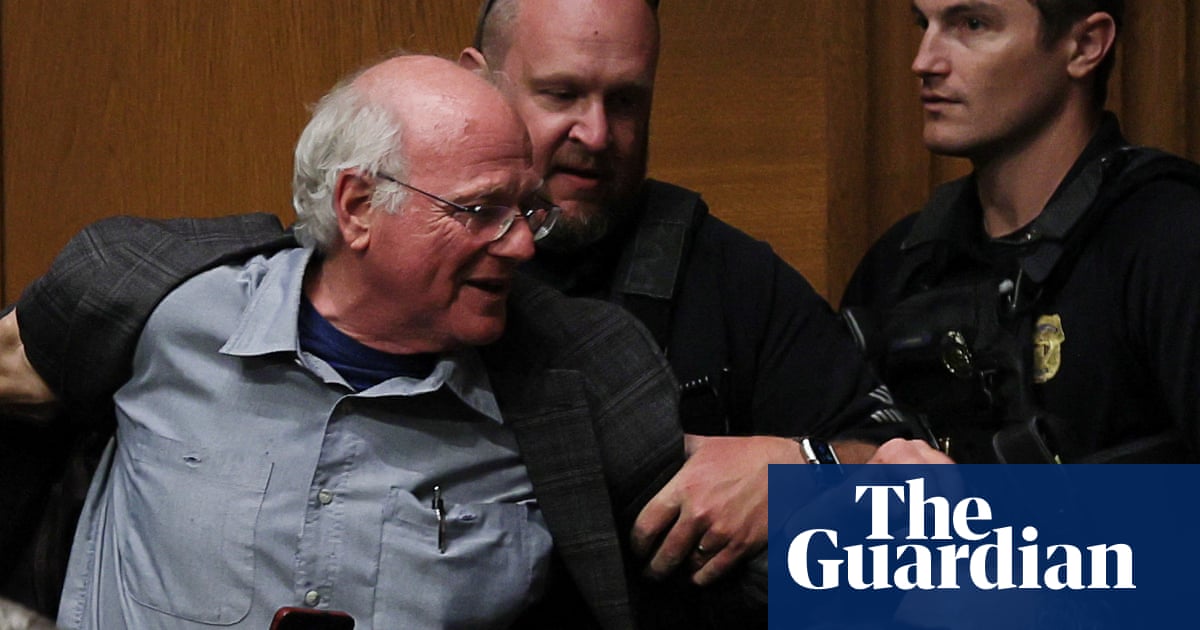Ben Cohen, the co-founder of Ben & Jerry’s ice-cream, has been charged with “crowding and obstructing” others after he was arrested while protesting against the Gaza blockade during aUS Senatehearing.
Cohen – the Ben in Ben & Jerry’s – made his stand on Wednesday whileRobert F Kennedy Jrwas addressing a hearing of the health, education, labor and pensions committee. A group of activists heckled the health secretary over his anti-vaccine posture, yelling: “When Bobby lies, children die,” and “Anti-vax, anti-science, anti-America”.
Then Cohen stood up and made his Gaza protest. Video film recorded at the hearing andposted by Cohenon social media shows him being hauled out of the committee room, handcuffed and escorted away.
As he is being removed, a woman asked him why he was being arrested.
He replied: “Congress kills poor kids in Gaza by buying bombs and pays for it by kicking kids offMedicaidin the US.” He added: “Congress and the senators need to ease the siege, they need to let food into Gaza. They need to let food to starving kids.”
Gaza is now in the 11th week of a total blockade byIsraelwhich prevents essential items including food, fuel and medicines reaching the area’s 2.3 million Palestinians. Many people are surviving on limited supplies of canned peas or dried beans.
A report this week fromfood security expertswarned that Gaza was at “critical risk of famine”.
Cohen founded Ben & Jerry’s with Jerry Greenfield, whom he met while at school in Merrick, on Long Island in New York. They opened the business in Burlington, Vermont, and saw it grow into an international brand and one of the largest ice-cream firms in the US.
Both founders have gone on to become prominent philanthropists through their foundation, as well as activists. Cohen has been a major backer of Bernie Sanders, the independent US senator and Democratic presidential candidate who also has his headquarters in Burlington.
Sign up toFirst Thing
Our US morning briefing breaks down the key stories of the day, telling you what’s happening and why it matters
after newsletter promotion
The Ben & Jerry’s duo have also been outspoken over several years on the Israel-Palestine issue. They describe themselves as “proud Jews” and supporters of the state of Israel, but have also been sharply critical of Israeli government policies.
In 2021, they co-authoredan articlein the New York Times supporting the decision of the ice-cream company, which by then they no longer managed, to end sales of its products in the occupied territories. “That we support the company’s decision is not a contradiction nor is it anti-Semitic,” they wrote. “In fact, we believe this act can and should be seen as advancing the concepts of justice and human rights, core tenets of Judaism.”
Cohen has been charged along with seven other protesters from Wednesday’s protest. The accusation of “crowding, obstructing or incommoding” is commonly used against protesters in Washington DC, and carries a punishment of up to 90 days in jail, a $500 fine or both.
